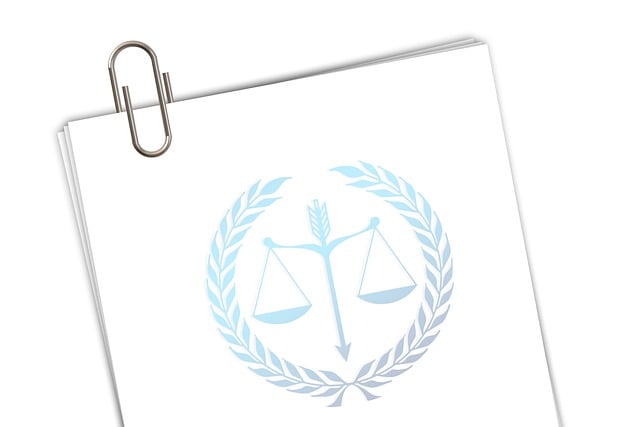Legal professionals employ diverse strategies to defend drug possession cases across jurisdictions, balancing justice with rehabilitative measures. In RF Securities, defense attorneys use evidence scrutiny, expert testimony, and cross-examination to create reasonable doubt. Understanding procedural rules, constitutional rights, and legal loopholes is key. Regulatory bodies like the SEC uphold industry integrity through a mix of legal strategies and penalties. Effective representation involves thorough investigation, fact-finding, and tailored legal approaches to challenge evidence and question witness credibility.
“Uncovering the intricate landscape of RF Securities Industry Regulation, this article delves into crucial aspects of legal defense strategies for those facing drug possession charges. Understanding drug possession laws forms the foundation, with a focus on deciphering complex regulations. We explore robust legal defenses, including challenging evidence admissibility, ensuring due process rights for accused individuals. Key regulatory bodies and their oversight roles are dissected, providing insights into the framework governing the industry. Additionally, we offer practical strategies for effective legal representation.”
- Understanding Drug Possession Laws
- Legal Defenses: Challenging Evidence
- Due Process Rights of Accused
- Regulatory Bodies and Their Roles
- Strategies for Effective Representation
Understanding Drug Possession Laws
Understanding Drug Possession Laws is a complex task, as these regulations vary significantly across jurisdictions. In many cases, individuals charged with drug possession face severe consequences, including substantial fines and imprisonment. The legal approaches for defending against such charges are varied and depend on state laws and specific circumstances.
Knowing the rights of an accused person is paramount. Legal professionals employ diverse strategies throughout all stages of the investigative and enforcement process to protect their clients’ interests. These range from challenging the admissibility of evidence to arguing for alternative sentences, focusing not just on the crime but also on rehabilitative measures. Such defensive tactics cater to the respective business, philanthropic, and political communities, ensuring that justice is served while considering the complexities of drug possession cases.
Legal Defenses: Challenging Evidence
In the RF Securities Industry Regulation landscape, one of the key components is navigating legal defenses when challenging evidence in drug possession cases. A robust legal approach for defending against such charges involves scrutinizing the evidentiary chain and employing strategic tactics to undermine its integrity. Defense attorneys can leverage detailed documentation, expert testimony, and rigorous cross-examination to create reasonable doubt.
An unprecedented track record of success in these cases is often built upon a thorough understanding of procedural rules and constitutional rights. Across the country, seasoned lawyers have demonstrated that by presenting compelling alternative explanations, inconsistent witness testimonies, and questionable collection methods, they can significantly weaken the prosecution’s case. This multifaceted legal strategy not only ensures a fair trial but also highlights the importance of rigorous legal approaches in defending against drug possession allegations.
Due Process Rights of Accused
In any legal proceeding, especially high-stakes cases like those involving RF Securities and white-collar defense, ensuring due process rights for the accused is paramount. This includes the right to be informed of the charges, the right to legal counsel, and the right to confront witnesses against them. These fundamental principles are designed to protect individuals from arbitrary or unfair treatment by the state.
Accused in RF Securities industry cases often face complex legal approaches for defending drug possession charges. Understanding their due process rights is crucial when navigating these high-stakes scenarios. Effective white-collar defense strategies may include challenging the admissibility of evidence, questioning witness credibility, and leveraging legal loopholes to exonerate the accused.
Regulatory Bodies and Their Roles
Regulatory bodies play a crucial role in ensuring ethical conduct and fairness within the RF Securities industry. These organizations are responsible for creating and enforcing laws that dictate how financial institutions operate, protecting investors from fraud, and promoting transparency. Each country has its own regulatory authority, such as the SEC (Securities and Exchange Commission) in the United States, which oversees stock exchanges and enforces federal securities laws. These bodies employ various legal approaches to defend against violations, including negotiating settlements or pursuing jury trials for his clients to avoid indictment.
The strategies employed by these regulators often involve a balance between deterrence and rehabilitation. They may impose fines, suspend licenses, or even prosecute individuals found guilty of misconduct. By doing so, they not only punish wrongdoers but also serve as a deterrent for others who might be inclined to engage in similar activities. This multifaceted approach ensures that the industry remains robust, secure, and trustworthy.
Strategies for Effective Representation
In the RF Securities Industry, effective representation strategies are paramount for navigating complex legal landscapes. Firms specializing in financial regulation must employ a multi-faceted approach to defend their clients against charges, especially in cases involving drug possession. A robust white collar defense strategy starts with thorough investigation and fact-finding, ensuring every detail of the respective business operations is understood. This foundational step allows lawyers to identify potential legal loopholes and build a strong narrative that distinguishes between legitimate financial activities and criminal intent.
Legal approaches for defending drug possession cases in the securities industry should be tailored to each unique situation. By combining extensive knowledge of regulatory frameworks with creative legal arguments, attorneys can challenge evidence, question witness credibility, and highlight any inconsistencies or misunderstandings. For his clients, this means a dedicated team of lawyers who not only protect their interests but also advocate for their innocence, ensuring a fair and just outcome.
The regulation of the securities industry is a complex web that includes strict guidelines on drug possession, as highlighted in this article. Understanding these laws, their defenses, and the rights of accused individuals is paramount. Regulatory bodies play a crucial role in ensuring fairness and due process. By employing strategic legal approaches for defending drug possession cases, including challenging evidence and leveraging regulatory frameworks, accused persons can navigate this intricate landscape. For those seeking to protect their rights within the securities sector, these insights offer valuable guidance. As such, it’s essential to explore legal defenses tailored to specific circumstances, ensuring a robust and informed defense strategy under the ever-watchful eye of industry regulators.






